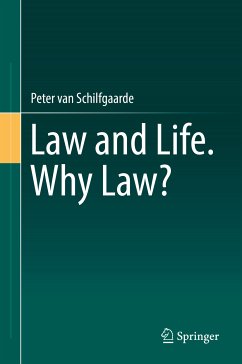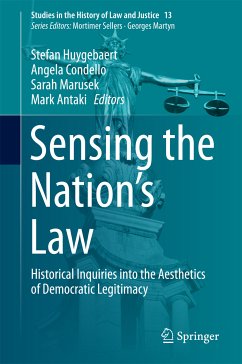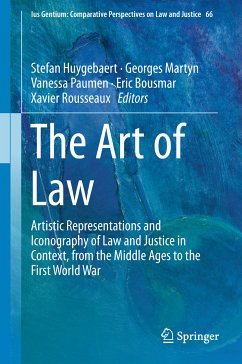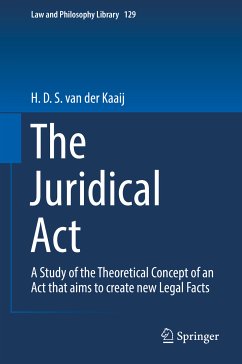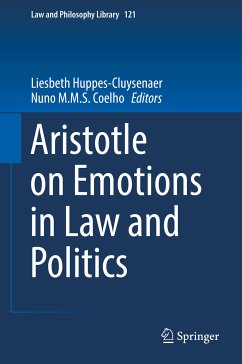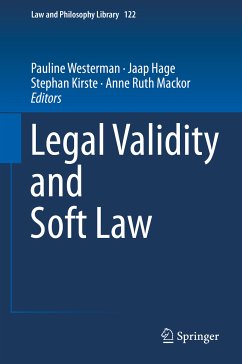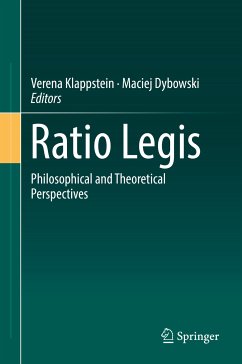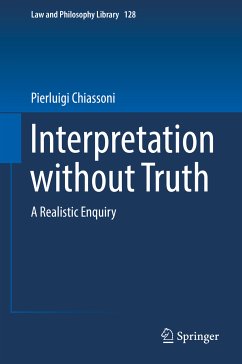
Searching for a Leftist Constitutionalism (eBook, PDF)
The German Left vs the Rechtsstaat 1848-1949
Versandkostenfrei!
Sofort per Download lieferbar
128,95 €
inkl. MwSt.
Weitere Ausgaben:

PAYBACK Punkte
64 °P sammeln!
Is there a viable leftist constitutionalism that we can juxtapose with liberal constitutionalism, or is there really no alternative? If the left is considered an a priori enemy of the principle of the rule of law, the equal chance condition proves illusory. Accordingly, those asking for changes to social institutions will deem constitutionalism undemocratic. Hence, in our times of silent de-constitutionalization at the global level and rising populism and democratic backsliding at the national level, this book offers a valuable opportunity to reconsider one of the founding principles of libera...
Is there a viable leftist constitutionalism that we can juxtapose with liberal constitutionalism, or is there really no alternative? If the left is considered an a priori enemy of the principle of the rule of law, the equal chance condition proves illusory. Accordingly, those asking for changes to social institutions will deem constitutionalism undemocratic. Hence, in our times of silent de-constitutionalization at the global level and rising populism and democratic backsliding at the national level, this book offers a valuable opportunity to reconsider one of the founding principles of liberal constitutionalism, the Rechtsstaat. It re-examines the controversies that accompanied the affirmation of the concept in a long-term perspective, from 1848 to the post-World War II constitutional debates. Since 1848 the German left has challenged the dominant liberal view of legitimacy, mainly by adopting Marx's critique of the ideology of law and the state. Thus, the left has had to challenge not only the established order, but also the mainstream political and legal culture generated by the liberal discourse on rights. In search of constitutional viability, the left has oscillated between two tendencies. On the one hand, it has denounced the discourse on rights as an ideological smokescreen used by the ruling class to keep us from paying more attention to the actual level of democracy within the parties, the governmental bodies and in everyday social relations. On the other hand, the left has attempted to adjust its platform to the mainstream idea of constitutional legitimacy by devising its own sozialer Rechtsstaat. However, the break-even point has proven hard to find. If the acceptance of liberal principles was seen as less than wholehearted, leftist constitutional proposals aroused suspicions of a coverup for an unconstitutional rule (Unrechtsstaat). On the other hand, when the left has accepted liberal constitutional principles in full, its potential to challenge the social status quo has ultimately proven to be disappointing. The controversy culminated in a desperate and largely unknown attempt to devise a constitutional compromise between Liberalism and Socialism in East Berlin in the wake of the Cold War. Although doomed to fail and devoid of democratic credibility, the debates of the East German constitutional commission in 1948 offer important insights into a century of experiences, trials and errors in constitution-making seen from the leftist perspective.
Dieser Download kann aus rechtlichen Gründen nur mit Rechnungsadresse in A, B, BG, CY, CZ, D, DK, EW, E, FIN, F, GR, HR, H, IRL, I, LT, L, LR, M, NL, PL, P, R, S, SLO, SK ausgeliefert werden.



